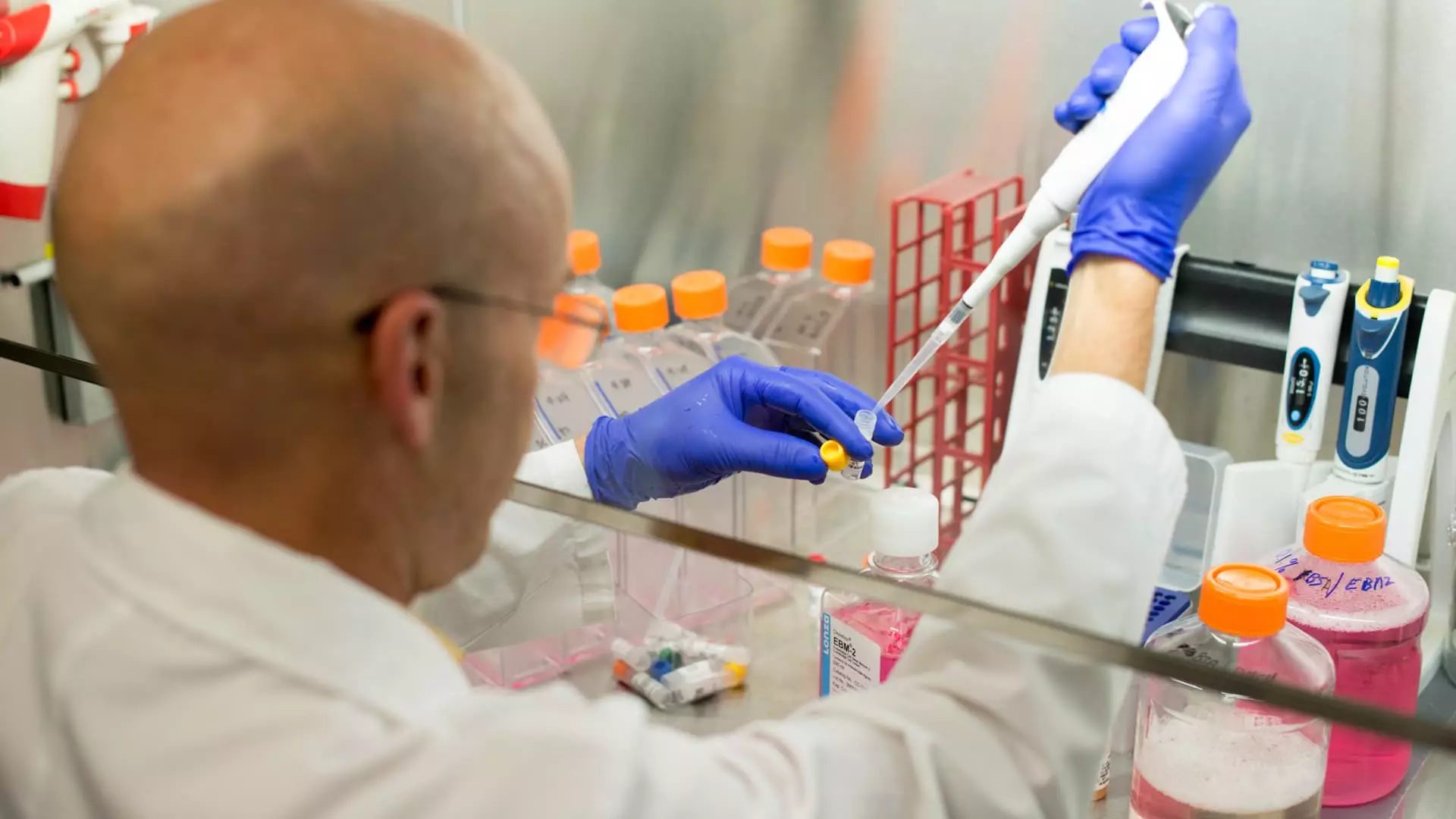In recent years, the convergence of artificial intelligence (AI) and biotechnology has paved a new pathway for drug discovery, raising hopes of more efficient and cost-effective treatments. A notable player in this realm is Recursion Pharmaceuticals, which recently announced a significant milestone in its efforts to develop a novel treatment for solid tumors and lymphoma. This article delves into the implications of Recursion’s advancements, examining their potential impact on the biotech industry and the challenges ahead.
Recursion Pharmaceuticals has managed to leverage its proprietary AI-driven drug discovery platform to identify a novel target in cancer biology—an impressive feat accomplished in less than 18 months. The recent successful submission of an investigational new drug (IND) application to the Food and Drug Administration (FDA) marks a notable achievement for the firm. The FDA approval pertains to a phase 1/2 clinical trial for their experimental drug candidate, REC-1245. This innovative approach not only highlights Recursion’s prowess in AI but also demonstrates a tangible application of technology in a sector that has traditionally relied on extensive research and lengthy trial periods.
The drug is aimed at a particular target, RBM39, which Recursion articulates as functionally analogous to the elusive CDK12 marker. By utilizing AI algorithms to navigate extensive biological datasets and make connections that human researchers may overlook, Recursion positions itself as a frontrunner in the techbio space. The implications for cancer treatment are profound, as this initiative could address the needs of over 100,000 patients across the U.S. and European Union.
CEO and co-founder Chris Gibson conveyed the excitement surrounding this venture during an interview, emphasizing how REC-1245 is the culmination of 11 years of data collection and analysis. Gibson likened their methodology to a comprehensive “Google-search equivalent,” indicating that the company has amassed extensive biological and chemical data that informs its discovery process. This systematic approach to drug discovery offers a paradigm shift in how pharmaceutical companies might innovate, as AI continues to refine candidate selection and streamline early-phase trials.
However, despite the promising advancements, skepticism remains among investors and analysts concerning the actual execution of AI in drug discovery. Recursion saw its stock decline by 38% in 2024, prompting questions about whether the hype surrounding AI can meet the realities of practical application. With a majority of analysts rating Recursion’s shares as a hold, and only a few issuing buy ratings, it is clear that overcoming investor wariness will be crucial for moving forward.
As Recursion Pharmaceuticals prepares to commence clinical trials in the fourth quarter of this year, several crucial factors will influence the outcomes of its endeavors. The phase 1 data from the dose-escalation portion of the study is projected to be completed by the end of next year—a timeline that indicates a need for ongoing strategic planning to navigate potential hurdles. Challenges such as regulatory compliance, patient recruitment, and maintaining funding will play pivotal roles in the successful transition from laboratory to clinical applications.
Moreover, Recursion’s impending merger with fellow AI drug discovery company Exscientia is anticipated to enhance its data processing capabilities further, allowing for more refined drug development strategies. Collaboration may provide substantial insights into leveraging collective datasets, thereby improving the efficacy of drug candidates and expediting broader research efforts.
While Recursion Pharmaceuticals stands at a promising intersection of AI and drug development with its recent achievements in cancer research, the journey ahead is fraught with challenges typical of pioneering ventures in biotechnology. Investors, stakeholders, and the biotech community will be keenly observing how this innovative company navigates the complexities of clinical trials, market dynamics, and technological advancements while striving to substantiate the role of AI in transforming drug discovery fundamentally.

Leave a Reply